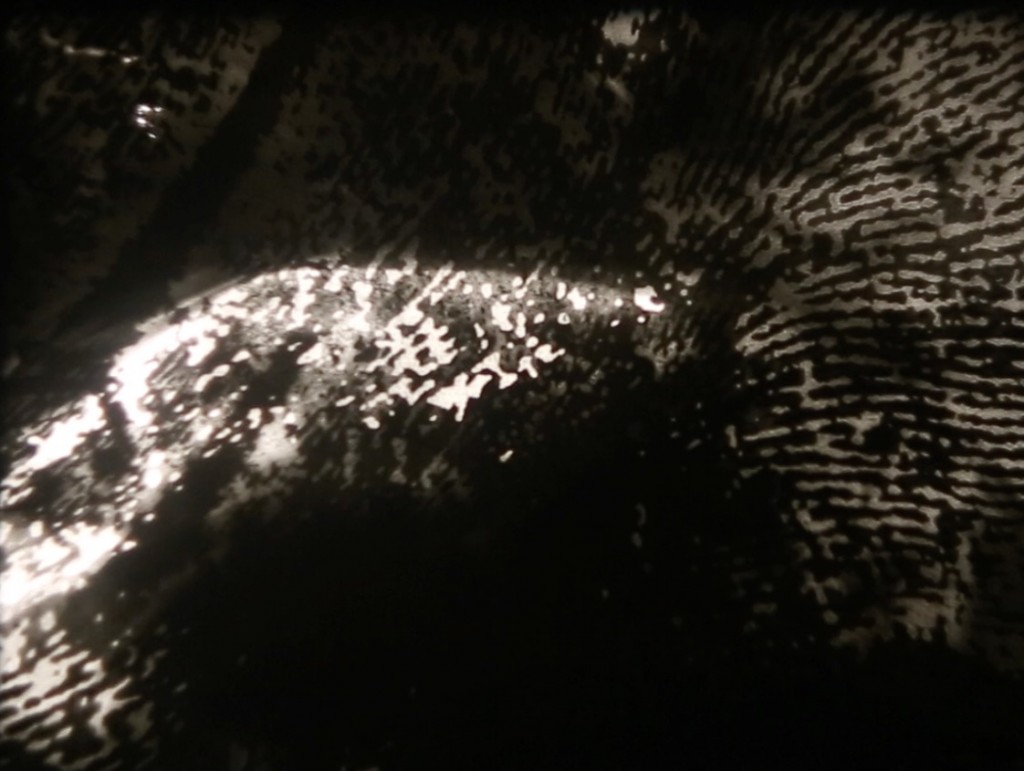
Share this:
A Rough History (of the Destruction of Fingerprints)
Performance and Talk
28/02/17 7pm

A performance, talk and short film by artist Ayesha Hameed with Susan Shuppli and Dr Kristen Kreider. A Rough History is a performance lecture that considers the practice by migrants entering the EU of destroying their fingerprints to avoid detection by the EU’s fingerprint database system, Eurodac, alongside other histories of fingerprint erasures. The performance will be looking at the coalescence of skin and data during the process of collection and destruction of fingerprints, at the life and circulation of the image of fingerprints, and the lives of those whose fingerprints are taken. This is a speculative history that travels from border checks, over other forms of fingerprint erasure, to early gestures in film.
The performance was exhibited as part of Forensic Architecture at the Haus der Kulturen der Welt, at Social Glitch at Kunstraum Niederoesterreich Vienna, at Pavilion in Leeds, and at Home Works Space Program in Beirut.
Dr Ayesha Hameed is a writer and artist who explores historical and contemporary borders and migration in her research. Her recent publications include contributions to Forensis: The Architecture of Public Truth (2014), The Sarai Reader (2013), Savage Objects: Inhuman Political Alliances (2012), TateETC (2010) and Photoworks (2011). She has presented her research at the University of Chicago, Cambridge University, the United Nations Human Rights Commission, the European Capital of Culture in Guimarães and the Städelschule. Ayesha has also received fellowships and grants from Cornell University, the Banff Centre for the Arts, Concordia University, Canada Council for the Arts and FRQSC amongst others. She is currently Lecturer in Visual Cultures and Joint Programme Leader in Fine Art and History of Art at Goldsmiths University, London.
Susan Schuppli is an artist and researcher whose work examines material evidence from war and conflict to environmental disasters. Creative projects have been exhibited throughout Europe, Asia, Canada, and the US. She has been published widely within the context of media and politics and is author of the forthcoming book, Material Witness (MIT Press), which is the subject of an experimental documentary. Schuppli is Senior Lecturer and Acting Director of the Centre for Research Architecture, Goldsmiths and was previously Senior Research Fellow on the Forensic Architecture project. She is a recipient of the ICP Infinity Award, 2016.
Dr Kristen Kreider is Professor of Fine Art Director of the PhD Programme at Goldsmiths, University of London. Kristen’s research is situated at a crossover between writing, art and architecture. Here she produces theoretical and critical writing, including a monograph entitled Poetics and Place: The Architecture of Sign, Subjects and Site (I.B. Tauris, January 2014), and works in collaboration with the architect James O’Leary. Combining visual, spatial and poetic practices, Kreider+O’Leary make work in sites such as prisons, military sites, film locations, landscape gardens and desert environments both in the UK and internationally. Her work has been shown at Tate Britain, Whitechapel Gallery and the Lisbon Architecture Triennale, their book Falling was published by Copy Press (December 2015) and Field Poetics by Eros Press (June 2016).